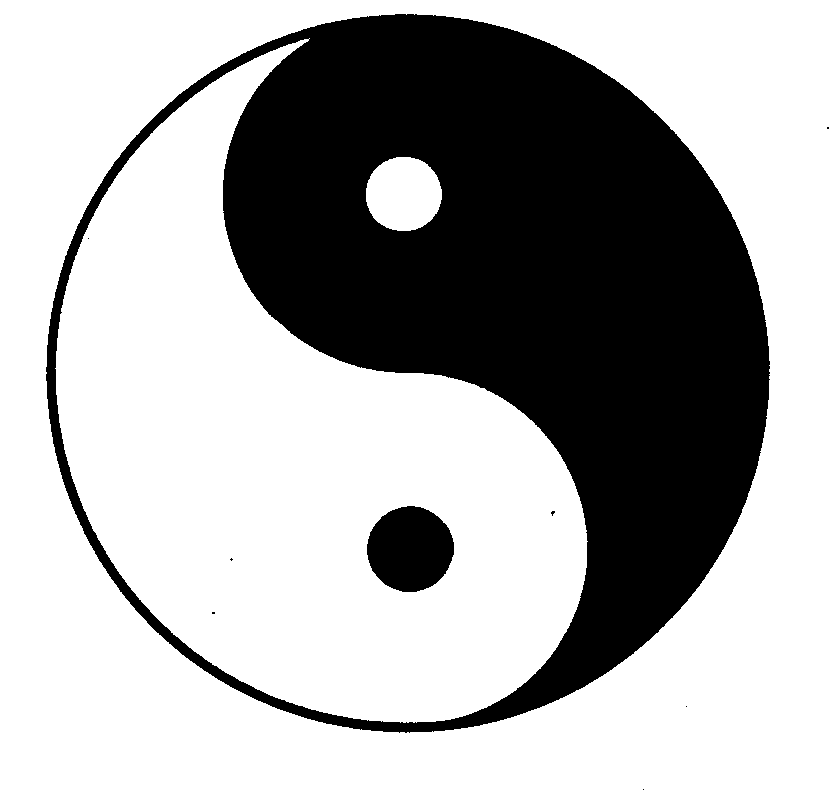Someone just wrote me with a very common question.
I wrote back this ...
Hi,
Car crashes into your car, you break your leg, you lose your job because
of it. This is Samsara. (A)
No car, no crashing, no leg and nothing ever broken, impossible to lose.
This is Nirvana. (B)
Now, experiencing A is a lot different when you simultaneously
experience A as B as well.
Before my Buddhist Practice, I used to experience A as just A. I used to
be sad, angry, shake my fist at the world. My leg, my car, my job, my anger!!!!!!!!
Now, if I can experience A as B, B as A ... well, my leg is still
broken, my car in the shop, and my job still gone ... I may even be a
bit pissed off and sad and afraid, which is a natural human reaction ... yet,
yet, yet ...
... yet, yet, yet, it is not what was before. Not at all!! Even the sadness and
loss cannot be experienced as they were before.
It is worth saying that some folks think our Buddhist practice is all
about B, only B, that we should only experience B, leaving A completely
behind. In our "Just Sitting" Way, to leave A completely behind is not life, it is to escape
from life. We were born in A, we should live in A. Fully and completely live in screwed up A!!!!!
Our Zen Way is to live A in B, B in A (in fact, so intimately, we say
"not even A not even B" "not one not two" ... that means something like
ABBA (not to be confused with the Swedish pop group!))
To realize this, we sit Shikantaza Zazen. To make it our life, well,
that takes a lifetime of practice.
All of Master Dogen's "simultaneously true"perspectives as we are discussing in Genjo Koan teach us new ways to see A and B (for example, we also come to see that our broken leg is perfectly our broken leg, with nothing to add or take away from that fact!)
Does that help?
Gassho, Jundo
Its been said that nirvana is samsara. There is no
difference between suffering in samsara and bliss in
nirvana. If this is the case, why do we need to
meditate? Aren't we simply buddhas-to-be just the way we
are? Because of this question, i sometimes neglect
meditation. I was just wondering what your opinion is
on this issue, on why we practice if we are in fact
already enlightened.
difference between suffering in samsara and bliss in
nirvana. If this is the case, why do we need to
meditate? Aren't we simply buddhas-to-be just the way we
are? Because of this question, i sometimes neglect
meditation. I was just wondering what your opinion is
on this issue, on why we practice if we are in fact
already enlightened.
Hi,
Car crashes into your car, you break your leg, you lose your job because
of it. This is Samsara. (A)
No car, no crashing, no leg and nothing ever broken, impossible to lose.
This is Nirvana. (B)
Now, experiencing A is a lot different when you simultaneously
experience A as B as well.
Before my Buddhist Practice, I used to experience A as just A. I used to
be sad, angry, shake my fist at the world. My leg, my car, my job, my anger!!!!!!!!
Now, if I can experience A as B, B as A ... well, my leg is still
broken, my car in the shop, and my job still gone ... I may even be a
bit pissed off and sad and afraid, which is a natural human reaction ... yet,
yet, yet ...
... yet, yet, yet, it is not what was before. Not at all!! Even the sadness and
loss cannot be experienced as they were before.
It is worth saying that some folks think our Buddhist practice is all
about B, only B, that we should only experience B, leaving A completely
behind. In our "Just Sitting" Way, to leave A completely behind is not life, it is to escape
from life. We were born in A, we should live in A. Fully and completely live in screwed up A!!!!!
Our Zen Way is to live A in B, B in A (in fact, so intimately, we say
"not even A not even B" "not one not two" ... that means something like
ABBA (not to be confused with the Swedish pop group!))
To realize this, we sit Shikantaza Zazen. To make it our life, well,
that takes a lifetime of practice.
All of Master Dogen's "simultaneously true"perspectives as we are discussing in Genjo Koan teach us new ways to see A and B (for example, we also come to see that our broken leg is perfectly our broken leg, with nothing to add or take away from that fact!)
Does that help?
Gassho, Jundo

 Never mind, I was just suggesting a cheaper alternative but you're already sorted.
Never mind, I was just suggesting a cheaper alternative but you're already sorted.

 ops: and it is thanks to the intellect we actually can understand its limitations
ops: and it is thanks to the intellect we actually can understand its limitations
Comment